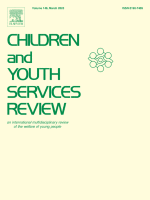Abstract
Arab women in East Jerusalem live in a traditional, patriarchal society with most women fulfilling traditional roles as wives and mothers. They are also part of the national ethnic minority, forming a unique cultural and political context. There is scant research on the experiences and perceptions of mothers whose children are removed from home to residential or foster care, with very little research on this topic in the Arab population.
Here the authors examined the effects of removing children to out-of-home settings both for reasons of child abuse and/or neglect and due to custody disputes on personal, familial and social aspects of the lives of Arab mothers in East Jerusalem. Semi-structured, in-depth interviews were conducted with 15 mothers with at least one child removed from home for a period of more than four years through an Israeli court order.
The women described a broad range of effects, such as emotional distress and effects on their health. They experienced increased violence against them from members of their birth family or their family by marriage. They also experienced social ostracism and were criticized as seeking an opportunity to abandon their roles as mothers. These experiences added to the background of abuse that these women had experienced all their lives. The role as mother is central to social expectations in traditional society, and removal of the children is seen as a failure in fulfilling this role. The research reveals the need to tailor interventions to the special characteristics of these women, to empower them and help them recover their wellbeing.

